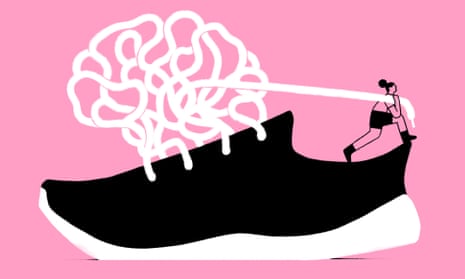Life is a Learning Exercise to Lubricate the Brain
"I'm actually doing a little bit of work now on how we can get more people [children] in the United Kingdom to play chess, because it's so good for you.""It's a great skill, and it's really good for helping you think."U.K. Prime Minister Rishi Sunak"Chess games are good for the brain as they require concentration, working memory, planning and problem solving.""Therefore, they activate the brain regions involved in those cognitive processes.""This is like a brain workout but also means you get better in those forms of cognition."Barbara Sahakian, neuroscience professor, University of Cambridge
:max_bytes(150000):strip_icc():format(webp)/Learning-Games-Decreases-Alzheimer-GettyImages-1454277759-3583fc45e380441c81b4ab57a360b022.jpg) |
| MirageC/Getty Images |
"For the most part, the numbers of brain cells or neurons stay pretty stable across your lifespan, but these activities affect synapses, which are the connections between neurons.""As we grow older, we tend to lose synapses in parts of the brain, and if you do things that are very stimulating toy our brain, you can make more connections, and you're just more resilient to the damage that's going on in the early phases of diseases like dementia."Tara Spires-Jones, professor of neurodegeneration, University of Edinburgh
In the summer, a study that tracked over ten thousand older Australians over the course of a decade was published in the Journal of the American Medical Association (JAMA). The study concluded that chess as well as other cognitively stimulating leisure activities may help to reduce the future risk of dementia. A view shared by neuroscience professor Barbara Sahakian, who says chess players -- those in particular who play competitively in leagues and tournaments -- become fast thinkers.
Yet it is not chess specifically and chess alone that is highlighted as a skill found by researchers to be beneficial in later life. Included are card games like bridge or poker, games that involve many of the same calculating skills as does chess, have been found to hold benefits to maintain or improve cognition as people approach their elder decades.
Active mental activities including card games, crosswords, puzzles or taking adult education classes were all identified as examples of activities geared to potential helpfulness in reducing the risk of acquiring dementia in years to come. American and Canadian psychologists in 2020 published a study where they described learning a second language as being effective in delaying Alzheimer's disease.
 |
| Illustration: Fran Pulido/The Guardian |
According to Professor Tara Spires-Jones, the idea that supports all these activities as measures that people can take to ensure their brain remains in prime working order to help prevent its deterioration in years to come, can be summed up as building a strong brain network through the stimulating of various parts of the brain, simultaneously. It is generally acknowledged that physi9cal activity is associated with lowering the risk of dementia.
This is because physical activity keeps tiny blood vessels in the brain healthy. Greater rates of atrophy or brain shrinkage, which naturally occur with age, result from issues relating to the blood supply to the brain. Increasing that supply maintains the brain's integrity.
"There's the calorie burning from dancing that has an impact alone. But because it's a form of aerobic exercise, getting oxygen to the muscles, you have this increased supply of nutrients to the brain.""This causes the brain to increase the production of a chemical called brain-derived neurotropic factor or BDNF.""When you do aerobic exercise, your brain cells create more BDNF, which makes them healthier, and it also makes the neighbouring brain cells healthier.""All exercise stimulates a process called neurogenesis, which is the birth of new brain cells. But if you stop running today, the benefits of that exercise decrease within just a few days.""Yet when you build strength in your muscles, you not only give birth to new brain cells that day, but you have more and more neurogenesis even days later."Joyce Shaffer, Psychologist, behavioural scientist, University of Washington
And there are other, alternate forms of exercising movement that occur in social settings. Dancing classes can act as one of the most beneficial forms of physical activity, according to behavioural scientist Joyce Shaffer. The BDNF increase has an essential role to play in maintaining healthy neurons, keeping the brain agile and capable of readily forming new connections; the essence of memory.
 |
| Back to school; learning a new skill (language) can benefit the brain. Harvard Health |
And there are even more aids that have the potential in exercising the brain; another is through music performance, mastering the ability to play a musical instrument. The International Journal of Alzheimer's Disease nine years ago examined twins; one had learned to play a musical instrument, the other had not. They were followed throughout the course of their lives; the musician found to be 64 percent less likely to develop mild cognitive impairment of dementia.
Leading researchers to conclude that beginning to learn to play any kind of musical instrument in mid- or later-life was one of the most powerful tools in the maintenance of brain health. The reason: music stimulates our brain through a myriad of pathways.
"People think that sound is just relevant to your ears, but it's connected to emotions, memories, what we pay attention to, movement and even how we interact with our other senses.""Music teaches you to make these connections between sound and meaning, and once you tune your brain that way, you carry this through the rest of your life."Nina Kraus, professor, neuroscientist, amateur musician Northwestern University, U.S.
Finally, Dr. Shaffer discovered gym strength training to be one of the most powerful methods of preserving cognitive faculties ... more so even than other forms of exercise, such as swimming or running.
Labels: Brain Health, Chess, Dancing, Exercise, Language, New Skills, Reducing Dementia

0 Comments:
Post a Comment
<< Home